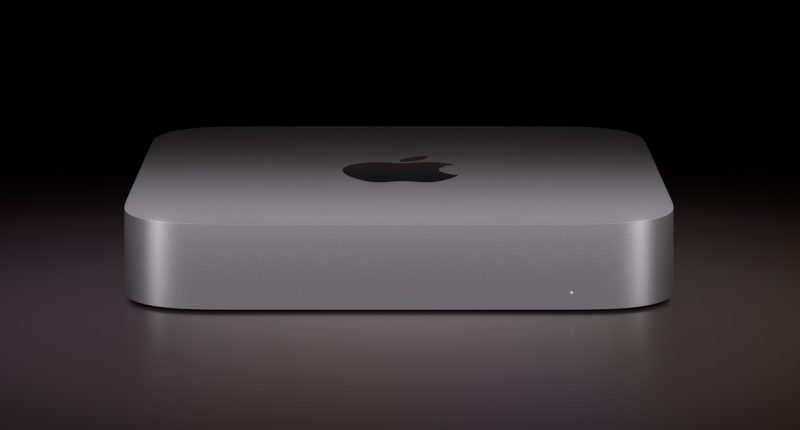Tech major Apple is preparing to release a redesigned Mac Mini later this year, marking the most significant change to the model in over a decade. According to Bloomberg’s Mark Gurman, this new version of the Mac Mini will be notably smaller than its predecessors, approaching the size of an Apple TV set-top box.
The redesigned Mac Mini is expected to be slightly taller than the Apple TV, which stands 1.4 inches high, but will still be considerably smaller than current models. The new Mac Mini will retain its aluminum casing, a hallmark of Apple’s design philosophy that combines both aesthetics and durability. The reduction in size could appeal to users seeking a more discreet and space-efficient desktop solution.
The forthcoming Mac Mini is expected to incorporate several design updates aimed at improving connectivity and functionality. Reports indicate that Apple has tested configurations with at least three USB-C ports and an HDMI output. These ports are essential for modern connectivity, allowing users to connect a range of peripherals and display options. The inclusion of these features suggests that Apple is focused on ensuring the new Mac Mini remains versatile despite its reduced size. The device will continue to feature an aluminum shell as well.
Following the 2023 refresh, which introduced the M2 and M2 Pro variants, the upcoming models will feature M4 and M4 Pro configurations. This processor, which debuted in the newest iPad Pro, promises to deliver significant performance improvements over its predecessors. The M4 chip will be available in two configurations for the Mac Mini: the standard M4 and the more powerful M4 Pro. Beyond the physical redesign, the new Mac mini is expected to incorporate advancements in thermal management and power efficiency.
The M4 chip is expected to be a cornerstone of Apple’s strategy for upgrading its entire desktop and laptop lineup. The Mac Mini will thus benefit from the advancements made in the M4 processor, which include enhanced computational power and efficiency. This comes at a time when the Cupertino-headquartered tech behemoth is planning to integrate its latest silicon across its product range, including the MacBook Pro, MacBook Air, iMac, and Mac Studio.
The Tech Portal is published by Blue Box Media Private Limited. Our investors have no influence over our reporting. Read our full Ownership and Funding Disclosure →






